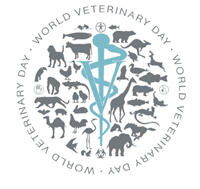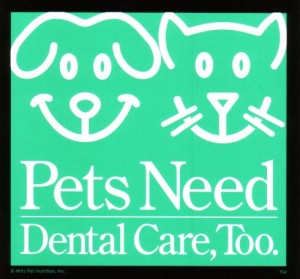Your parents probably warned you that kissing a stranger was like kissing everyone that person kissed. Well, they were right and the same advice applies to your dog! Yes, we know they all love one another and as much as we try to keep a clean and healthy environment, there is still a possibility for transmission.
What is Canine Papilloma Virus?
Canine oral papillomas, also known as oral warts, are small benign tumors of the mouth caused by the canine papilloma virus. They are found on the lips, gums, mouth, and rarely can also be located on other mucous membranes.
Causes of Papilloma Virus in Dogs:
Canine oral papillomas usually affect young dogs, under the age of 2. Young dogs are more susceptible to the papilloma virus because their immune system is not fully developed. As their immune system matures, they produce antibodies against the virus and the warts can eventually disappear. Affected dogs can transmit the virus to other dogs through direct contact. This usually occurs when they greet each other, share toys, eat or drink out of the same food or water bowl. Canine papilloma virus is species-specific and therefore cannot be transmitted from dogs to humans or cats.
Symptoms of Papilloma Virus in Dogs:
Papillomas typically develop on the lips, tongue, throat, or gums. They are round and have an irregular surface, reminiscent of cauliflower or a sea anemone, and usually grow in clusters. Most dogs are asymptomatic unless the papillomas become infected. Infected oral papillomas can cause pain, swelling, and bad breath.
Diagnosis of Papilloma Virus in Dogs:
It is always a good idea to bring your dog to your veterinarian if you ever notice any lump or bump, regardless of its location. Your veterinarian can usually diagnose canine papilloma by their characteristic appearance. Since oral papillomas can occasionally become malignant (cancerous) and other types of cancers can grow in the mouth, your veterinarian may obtain a biopsy of the lesion to establish the diagnosis. Likewise, your veterinarian will examine your dog’s mouth to determine if the papillomas are infected and antibiotics are needed.
Treatment of Papilloma Virus in Dogs:
Most importantly, if your dog has been diagnosed with papilloma virus, you will need to keep them isolated from other dogs to avoid transmission. Since canine oral papillomas are usually asymptomatic, treatment is often not indicated unless they become infected or become symptomatic. Infected papillomas can be painful and require a course of antibiotics. Occasionally, a dog will have so many growths that eating becomes problematic. When this occurs, the papillomas may need to be removed surgically.
Our Veterinary Clinic is Here to Help
Regular visits to the veterinary clinic are vital to your dog’s well-being, especially if they are diagnosed with a condition such as canine oral papillomas. Regular exams can help us detect the condition early and monitor it over time, allowing us to manage your dog’s symptoms as they emerge and prevent the condition from progressing. Here are some of the ways that routine visits to our veterinary clinic can help you easily manage your dog’s papillomas:
- Early Detection: Most dogs are very good at hiding signs of illness; a thorough exam on a regular basis can help us identify canine papillomas early, which makes it easier to manage and contain. Because this condition can be so contagious between dogs, it’s important to detect the condition as early as possible – this can help you control the spread, especially if you have other dogs at home.
- Safety: Detecting canine oral papillomas involves looking inside your dog’s mouth to check for wart-like masses. However, the feasibility of this action can depend heavily on the dog in question. If you don’t feel comfortable looking in your dog’s mouth for any reason but you suspect that they might have contracted canine oral papillomas, bring them to our clinic so we can check safely.
- Management & Treatment: While papillomas in dogs generally resolve on their own, it’s important to be aware of the condition so we can monitor your dog’s well-being. If treatment becomes necessary, we can act quickly to prevent complications and keep your dog comfortable.
- Peace of Mind: Staying informed about your dog’s medical needs is an important step in their overall care. We know that your dog is a treasured member of your family, so we will provide dedicated care and answer all of your questions to put your mind at ease.
If your dog goes to daycare, or plays with other dogs at the dog park or on walks, please routinely check inside their mouths to make sure they have not developed canine papilloma virus. If you suspect that they might have developed the condition, Cornerstone Animal Clinic in the Dallas, TX area is here to help. Please call us at 972-385-3555 to schedule an appointment so we can examine your furry family member!
HAVE A PAWSOME DAY!

Bernie Morse






